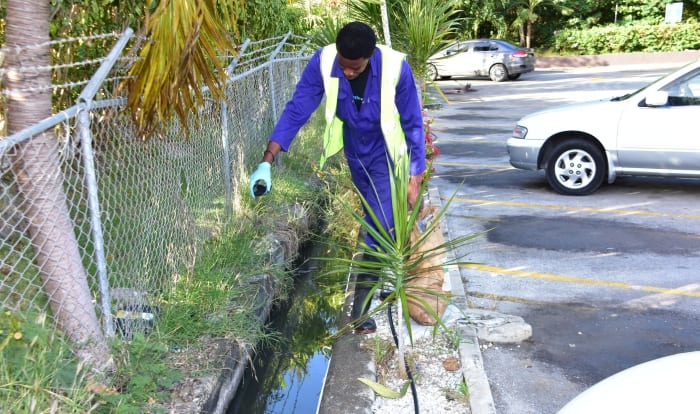With close to 90 per cent of Barbadians now having the new Trident identification card, the government has dropped Wednesday’s deadline for mandatory registration, leaving the ball in the court of the approximately 25 700 people who have not yet applied for the new card.
The old laminated card, a system in use since Barbados was a British colony, will be allowed until it needs to be replaced.
In a Ministerial Statement to the House of Assembly on Tuesday, Minister of Industry, Innovation, Science and Technology Marsha Caddle said despite the myriad benefits offered by a digitised card, including being the “best option” against identity theft, ministers have agreed to a “mutual trust” pact between the government and citizens.
There is now no deadline for people to have the digital identification card and both cards will be accepted forms of identification by government departments and financial institutions, she told the House. However, she advised that the new Trident ID would be issued once the old document had to be replaced.
Caddle, who took over the ministry a month ago from Davidson Ishmael in a Cabinet reshuffle, told lawmakers that up to January 26, some 243 320 people had registered for the digital card, representing 88 per cent of the total eligible population of 269 090. Some 108 338 of those new cardholders are 51 years old and over, or 98 per cent of that group.
Given the “overwhelming” uptake of the digital ID by Barbadians, the government need not act as an “irritant” to even a handful of Barbadians by insisting on mandatory adoption of the digital ID card “or run the risk of disenfranchising those most in need of Government’s services”, the minister declared.
“The institutions of the State such as the Transport Board, the Barbados Drug Service and others that provide critical goods and services will not deny those goods and services to the very few numbers of Barbadians who may have from February 2024 or at any time in the future present with the old ID card,” she said.
“Furthermore, we have had discussions with the Central Bank of Barbados which has agreed with us to take a similar approach in dialogue with the financial institutions which they supervise. To be clear. . . the deadline has not been extended, the deadline has been removed.”
The Electoral and Boundaries Commission (EBC) which has been responsible for the identification card project will revert to business as usual from February 1.
The minister explained that an amendment to the three-year-old Barbados Identity Management Act would be necessary to extend the life of the old ID card that was due to expire in April 2022 but which saw some three amendments to extend to June 30, October 30 2023, and ultimately to January 31, 2024. Changes would also be necessary to certain provisions of the legislation which sought to hinder those without the new cards from qualifying for a driver’s permit or licence or even being registered to vote.
Caddle also suggested that the present circumstances discriminate against young people since they are often asked to provide proof of address in cases where they are not heads of households and have no utilities in their name. The digital ID, she explained, would eliminate this requirement since it validates users securely providing a complete data profile of each person on the national register.
The minister said the Barbados Identity Management Act is to undergo a comprehensive review. Among the areas to be revisited are the validity period for the card and the issue of the fines associated with violating aspects of the law.
She also informed the House that the contentious online registration process for the new ID would not be reintroduced until the kinks which prevented its smooth operation could be worked out.
Caddle noted that the online portal which was to facilitate online applications was launched in August 2022 and had to be taken offline in February 2023 because it did not work well. She reported that less than a third of the 17 000 attempted online registrations were imported successfully into the EBC’s card processing system mainly because of issues with picture quality and signatures.
The next step in the process, she said, would be the validation of the addresses of new cardholders by the EBC, which she described as a standard electoral function regarding the voters’ register.
There will also be work on activating the functionality of the physical cards’ chip and pin technology to permit secured information access to businesses and cardholders and provide digital signature capabilities and mobile identification. That technology is now being developed, she added.
“This is the beginning of a journey,” she told the House of Assembly.
Caddle explained that a full action plan is to be developed and will be shared with the public as part of the “honest” and regular conversation.
“There is nothing to be gained by knowingly exposing Barbadians to risks,” the minister added as she outlined that the large number of registrations for the new card demonstrated Barbadians’ confidence and enthusiasm for the new venture. (SP)
The post Old ID cards to remain eligible under ‘mutual pact’ between Gov’t, citizens appeared first on Barbados Today.


